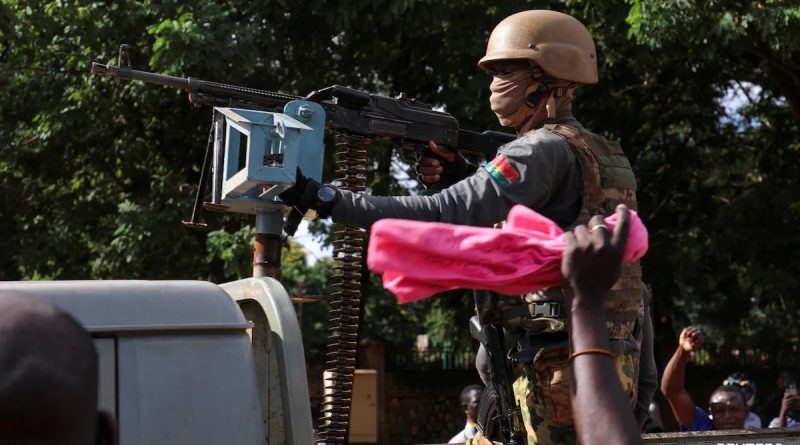Burkina Faso, Mali, and Niger Withdraw from West Africa’s Primary Political Alliance
Junta-led countries withdraw from ECOWAS
In a significant development, the West African nations of Mali, Niger, and Burkina Faso have officially withdrawn from the Economic Community of West African States (ECOWAS). This decision comes after more than a year of diplomatic tensions between the member countries and the regional group.
The Withdrawal and its Impact
The departure of Mali, Niger, and Burkina Faso has sent shockwaves through ECOWAS, which is widely regarded as one of the most important regional groups in Africa. The leadership of ECOWAS has stated that the organization will “keep its doors open” to the three countries, but the future relationship between the parties remains uncertain.
The rift between ECOWAS and the three countries began in July 2023 when a coup took place in Niger. This was followed by similar military takeovers in Burkina Faso and Mali in previous years. ECOWAS threatened to intervene militarily in Niger to restore the ousted president and imposed harsh economic sanctions on the country, which have now been lifted.
Formation of the Alliance of Sahel States
Following their withdrawal from ECOWAS, Burkina Faso, Mali, and Niger have come together to form their own confederation known as the Alliance of Sahel States (AES). The new alliance aims to enhance cooperation and address common challenges faced by the three countries.
Continued Recognition and Engagement
Despite their withdrawal from ECOWAS, the organization has called on member countries to continue recognizing the passports from Burkina Faso, Mali, and Niger that bear the ECOWAS logo. Citizens of these countries will also retain the right to visa-free movement, residence, and establishment in accordance with ECOWAS protocols until a new decision is made.
Trade and Economic Relations
Goods and services from the three withdrawing countries will continue to be treated in accordance with ECOWAS rules until a decision is made on the future engagement with these nations. The military rulers of the Sahel states have criticized ECOWAS for its perceived failure to assist in combating jihadist uprisings and for its close ties with France, the former colonial power in the region.
Shift in Alliances
In response to their grievances with ECOWAS, Burkina Faso, Mali, and Niger have shifted their security alliances away from France and towards countries like Russia, Iran, and Turkey. This change in partnerships reflects the evolving geopolitical dynamics in the region.
Normalizing Relations
Despite the tensions with ECOWAS, some member countries like Togo and Ghana have moved to normalize their relations with Burkina Faso, Mali, and Niger. Ghana’s new president, John Mahama, has even appointed a special envoy to the Alliance of Sahel States, signaling a willingness to engage with the new confederation.
The Future of ECOWAS
The departure of Mali, Niger, and Burkina Faso from ECOWAS raises questions about the future direction of the regional organization. As ECOWAS celebrates its 50th anniversary this year, the withdrawal of these key member countries underscores the challenges and complexities facing regional integration efforts in West Africa.

